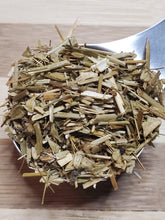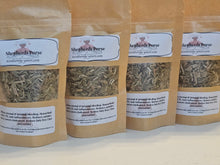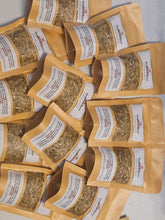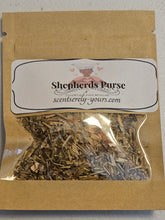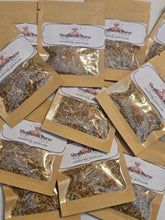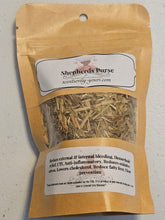Shepherds Purse
Scent'Serely Yours Health & Wellness Spa
Regular price
$10.00
Sale
COMMON NAME
Standardized: Shepherds Purse
BOTANICAL NAME
Capsella Bursa Pastoris
Origin: Bulgaria
OVERVIEW & Overall Claimed Benefits
Organic Cut & Sifted
Shepherds Purse
Shepherds purse is a flowering plant in the mustard family. It grows all over the world and is one of the most common wildflowers on Earth. Its name comes from its small triangular fruits, which resemble a purse. Other names for it include:
- toothwort
- mother’s heart
- St. James’ weed
- witch’s pouch
Knowln for it's anti-inflammatory properties, reduces oxidative stress, lowers cholesterol, Reduces fatty Liver, hemorrhoid relief, used to treat digestive issues, diarrhea, treat and prevent duodenal ulcers. Stops internal and external bleeding, treats urinary problems, and as a wound remedy. It should be avoided during pregnancy, although it is often used during the last stages of labor to prevent bleeding problems
- Rich in essential nutrients: It contains vitamins A, C, and K, as well as minerals like calcium and magnesium.
- Used for heart and circulatory problems: Including mild heart failure, low blood pressure, and nervous heart complaints.
- Stops bleeding: Often used to stem bleeding, especially by women following childbirth.
- Diuretic and blood-cleansing properties: It has diuretic, blood-cleansing, and blood pressure regulating properties.
- Treats digestive problems: Used to reduce inflammation and remedy bedwetting.
PRECAUTIONS
Specific: The plant could interact with certain medications. For example, combining this herb with sedatives or other sedating drugs like barbiturates, benzodiazepines, or certain pain relievers could worsen drowsiness and breathing difficulties.
Because shepherd’s purse may affect blood clotting, it’s best to avoid it if you’re taking blood thinners or have any circulatory issues.
This is also why you may wish to stop using it a few weeks prior to any surgery to ensure that it does not interfere with your body’s natural blood clotting ability.
You should also avoid it if you have thyroid problems, as it can affect thyroid function.
There’s also no data confirm whether the plant is safe for pregnant or nursing women.
General: We recommend that you consult with a qualified healthcare practitioner before using herbal products, particularly if you are pregnant, nursing, or on any medications.
*This statement has not been evaluated by the Food and Drug Administration. This product is not intended to diagnose, treat, cure, or prevent any disease. For educational purposes only.






